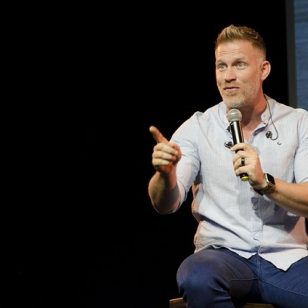By Brian Lothridge
Contributing Writer
I will always need an editor. And so will you — if your aim is strong writing.
It’s ok. Even the best writers are fallible. Editors are invaluable.
I have been both an editor and a writer in print journalism. While I prefer the role of writer, being an editor has made me a better writer.
Editor’s Take: What Does Strong Writing Look Like?
Here are a few things I picked up as an editor that have greatly improved my writing:
Clarity Matters
You can have all the knowledge and passion in the world about your subject. But you will confuse and lose your audience if you can’t write clearly. Being an editor has helped me write with as much clarity as possible.
Editors don’t need to be experts on the subject at hand. Most readers aren’t, either. My rule of thumb: if an editor can’t understand what’s written then the average reader won’t, either.
Journalists write for a general audience. Many strive to write to a sixth-grade reading level. As an editor, this meant I turned complicated words into easy words. I took complex sentences and made them simple. I took jargon words (every industry has them) and turned them into familiar words. This helped make writing more clear and is something I keep in mind as I write.
Audience Matters
It’s important to know your audience. Understanding your audience will help you decide how to write. Each audience has different needs when it comes to meeting clarity, content and context.
Writing for targeted audiences can be more technical than writing for a general audience. You can use jargon for people in your industry because you share a common language. You can use complicated words for your highly educated audience. Knowing how your audience talks and honoring their interests and intelligence will help you write to them effectively.
Hooks Matter
Your writing is competing against an endless stream of other writing: news stories, blogs, social media, emails, etc. Why should someone read your work above others? Let them know right up front. It doesn’t matter if you’re writing a book, a news article, a blog post or poetry. You will lose the reader if you start out boring.
Find a hook. Find something that will keep the reader interested beyond the first sentence. I recently wrote an opinion piece supporting health care legislation. I didn’t begin with, “The New York Health Act is a bill that will …” That came later. I began with, “I’m going to lose my health insurance soon.”
I wanted the reader to feel the frustration I felt so that they would keep reading. That one sentence succinctly described my problem and set up the rest of the piece.
Genre Matters
Newspapers are filled with different types of writing. I learned strong writing skills from editing thousands of articles from a variety of genres.
There are hard-news stories like crime, civic leadership and major community investments. These stories have a serious tone and get straight to the facts.
There are feature stories, perhaps highlighting a fascinating person or previewing an upcoming community event. These stories are written with a light-hearted tone.
There are opinion columns, like a person’s view on the latest political story. These may include facts, but are written with the understanding that the columnist is sharing their point of view.
These genres have their purpose and will inform how you write your piece. Your story about the car crash downtown will be a facts-forward and serious piece. Your feature about the public figure who just retired can take its time coloring in some details you wouldn’t normally include in a hard-news story. Your opinion piece will enable you to say what you think, something you can’t do in other genres.
Knowing how to write for several different genres will make you a more versatile and effective writer.
Quality Matters
I hated getting my stories back covered in red ink. It meant that I wrote carelessly. Anyone can turn in a story with a misspelled word or the wrong “there, their, or they’re.” We’re all imperfect and need editors.
However, a piece full of errors doesn’t reflect well on a writer and it greatly annoys an editor. I have been annoyed by writers who routinely turned in poorly written pieces. I’ve also annoyed an editor or two.
The red-ink treatment helped me to improve my writing quality. I strive to turn in a piece to an editor that will take little editing work. I edit myself as I write, but I also read my writing and rework it before I send it to an editor.
I’d rather an editor help me tell the story more effectively than tell me I misspelled the name of the mayor or used “it’s” when “its” was correct. So would the editor.
Strong Writing is Hard. Learn to Write with an Editor’s Eye
I’m thankful for my experience as an editor, as it has helped me to write with greater impact. I am also thankful to my editors who have helped shape my work.
Writing is hard, but you’re not in this alone. I have 15 years of writing and editing experience. I was a reporter and editor for eight years, and I’ve spent the past seven years as a pastor and nonprofit freelance writer. I have experience with a variety of internal and external communications including newsletters, blogs, social media, political advocacy, grant writing and more.
Now, in collaboration with Southern Tier Communications Strategies, LLC, we develop and launch content-marketing strategies (including blogging, social media and other forms of website development for website traffic and lead generation), in addition to nonprofit grant writing.
Your organization’s story matters. Let’s amplify it. Check out my website or email me at co********************@***il.com. For more information, email STCS President and Founder, Kelsey Boudin, at ke****@************************es.com.







